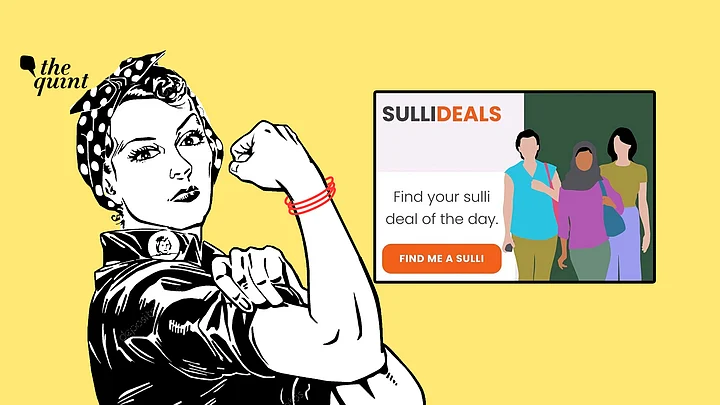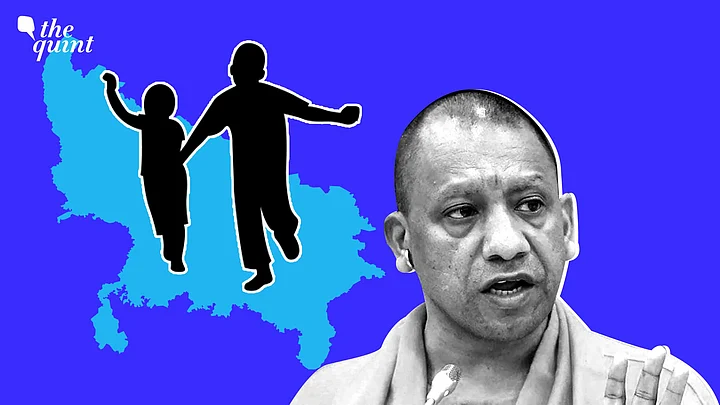Dear Editor,
There are two sides to most stories, mine wasn’t one of them.
When my pictures and name were put online on an app to be auctioned off as ‘deals of the day’, it was done by a Hindu man attempting to attack women, Muslim women, and it was to silence them from speaking up. Those are just facts that I want to first establish here and would request you to read my argument in light of them.
I write this letter to you as a response to the article: ‘'Sulli Deals' to Love Jihad: Why Community Leaders Stay Silent’.
Growing Impunity of Hindutva Warriors Against Muslims
As journalists we can sit here and discuss the impunity, we can discuss what enabled the man to feel empowered enough to do it, and then come online laughing at the victims and challenging them to do anything about it.
We can discuss the role of big tech, and we can rightfully discuss through our journalism how India slowly but surely has moved to become one of the most difficult places for a Muslim to live in today, man or woman. We can then discuss why our government doesn’t seem to want to do anything about it.
We can discuss why Islamophobia is at its peak in Narendra Modi’s India today, and we may attempt to dissect how that encourages men like Ritesh Jha to put up apps like Sulli Deals—because they know the worst that could happen to them is that their bigotry goes unnoticed. Best case, they’ll be made cabinet ministers someday. A garland in the next Mahapanchayat? Arguably a given.
We may also go on to discuss how the internet itself has become a political tool to silence minority voices through threats and abuse. How Prime Minister Narendra Modi’s election and subsequent re-election bolstered the populist far-right movement in India and institutionalised the demands for Hindi, Hindu, Hindutva.
Why Are Victims Held Up for Scrutiny?
We can discuss how it is the clever leveraging of social media that has played, and continues to play, an active role in promoting and normalising Hindu nationalism in the country. We can discuss how Sulli Deals was just another example of that bigotry, of the normalisation of hatred towards Muslims and their subsequent dehumanisation.
There are perspectives, there are opinions, there are hot takes. Most find a place in the many vivid colours of journalism we see in India today. What we cannot, however, logically discuss in this case is the role of Muslim leaders—simply because there isn’t one.
To publish an article focussed on talking about unsubstantiated, illogical stereotypes about Muslim leaders and Muslims in general, when it is in fact Muslim women who have been harassed by Hindu men, is offensive to say the least, problematic to put it mildly, heart breaking at its core.
For a Muslim woman like me, who has worked as a journalist at The Quint and has seen the discussions that go around approval of topics, I am shell-shocked to see that my own community is being held up for scrutiny as a response to MY harassment, and that of dozens of other Muslim women at the hands of Hindu men.
What is even more disheartening is the realisation that perhaps, at the end of it all, Muslims are left to fend for themselves, because when we are wronged (which is often), critics and activists of the world will talk of everything BUT what was done to us and by whom.
Does Publishing Problematic 'Takes' Not Further Islamophobia?
It angered me initially to see that the issue was turned into one about ‘women’s rights’ - which of course it was, but would I be wrong to say that in this case it wasn’t just women attacked, but Muslim women attacked because of their religion?
My question is—when we are so afraid to name the perpetrators, to name the victims, to identify radicalisation of our own majority society’s consciousness (or lack thereof) is there any respite for people like me? When newsrooms are willing to find faults in the community of the oppressed, when such takes are published, how can we morally look away from what we contribute to in such situations, which at the end of the day, is simply even more Islamophobia?
Does not a discussion about Muslim leaders in this context take away from the issue at hand? Does not it allow for our pain to be sidelined once more, for us to be moved from the stage so that once again the Muslim community can have something to answer about?
I was Put Online for Sale, I Don't Care for Muslim Leaders' Silence
How many attacks around the world do we condemn?
How many issues do we speak about?
How many times do we plead not-guilty?
And now we are expected to defend ourselves even when we are at the receiving end?
I was put online for sale, and I do not care for what Muslim leaders have to say. I care about why my government is doing nothing to stop it. I care about why the police won’t arrest the man. I care about how big tech makes it so easy for people to constantly, everyday, harass and violate our dignity. I care about why it is so difficult for the common man in India to look at Muslims as people.
People who want their fellow citizens to stand up for them. People who are tired of fighting for themselves. People who don’t want pity, but acknowledgement. People who want their basic rights to be protected. People who want law and order to help them as it would any other citizen. People who are frankly and honestly exhausted in the face of everyday violence and Islamophobia.
A Hindu Man Tried to Auction Muslim Women, Let's Stick to That
We’re fighting everyday, speaking as much as we can, and will continue to - Sulli Deals or not. That is a fact. But if in all of this we can be slightly more cautious of who we give a voice to on our platforms, it wouldn’t just greatly help the cause, but perhaps actually save hundreds from future attacks like these.
This isn’t about Muslim people and how the world thinks we live to marry several women and end up in heaven with hoors. This is about how a Hindu man tried to auction off Muslim women online to scare them into silence. This is about how that translates to the offline world, and what we can now do to make sure it doesn’t happen. Let’s stick to that.
Thanks and regards,
Hiba Beg
(Hiba Beg is a student at Columbia University, New York. She tweets at @HibaBeg. This is a personal blog, and the views expressed are the author’s own. The Quint neither endorses nor is responsible for them.)
(At The Quint, we question everything. Play an active role in shaping our journalism by becoming a member today.)

